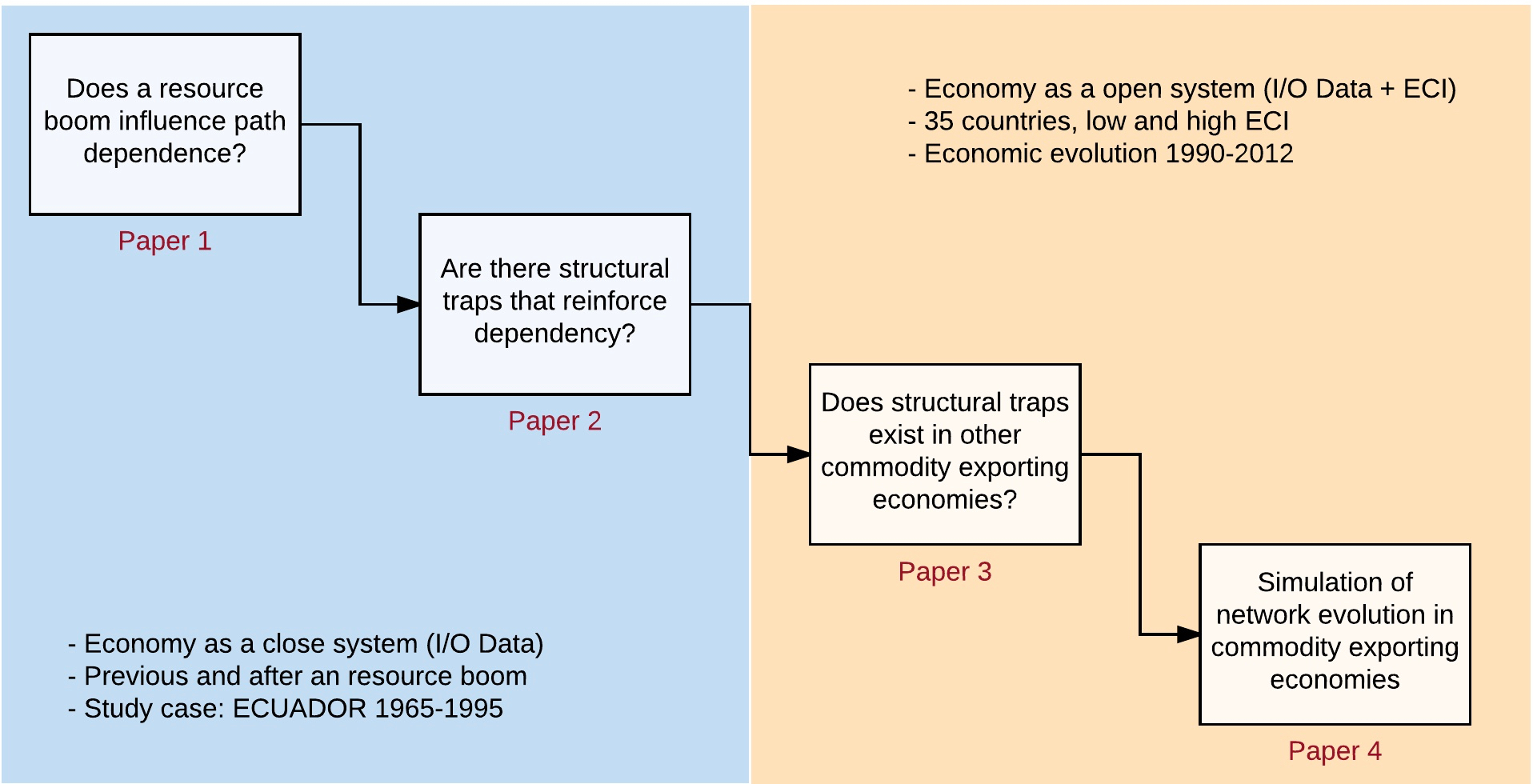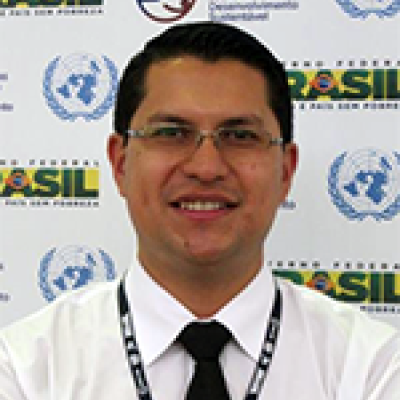Pablo Astudillo-Estévez
Doctor of Philosophy (DPhil) in Geography and the Environment - Degree completed in 2022
Supervisor: Professor Gordon L. Clark
Doctor of Philosophy (DPhil) in Geography and the Environment - Degree completed in 2022
Supervisor: Professor Gordon L. Clark
Path dependence, reinforcement mechanisms and economic complexity in commodity-exporting countries
Academic Profile
Pablo was a doctoral student in the School of Geography and the Environment, he completed his degree in 2022. He holds an Environmental Engineering degree from the School of Geology, Mining, Petroleum and Environmental Engineering at the Universidad Central del Ecuador. He also holds an MSc in Environment and Development from the University of Edinburgh (with Distinction) and a PG Diploma (Hons) in Climate Change at the Instituto Latinoamericano de Ciencias.
Prior to joining the DPhil programme, Pablo was part of the Ecuadorian negotiation team at the United Nations Framework Convention on Climate Change (UNFCCC), the United Nations Conference for Sustainable Development (UNCSD), and worked as the International Climate Policy Coordinator for the Ecuadorian Ministry of Environment. He also served as the Acting National Director for Climate Change Mitigation and advised high-level decision/policy makers in Ecuador on issues related to climate change and sustainable development. In addition, Pablo worked as an environmental consultant for Cornerstone Resources. He held a position as the Latin America Coordinator for 350.org and as was National Coordinator for a United Nations Environment Programme (UNEP) initiative called GEO for Youth.
Awards
- SENESCYT Scholarship of Excellence 2014
- SENESCYT Scholarship of Excellence 2012
- Organization of American States, Full Scholarship 2011
- World Bank, Development Marketplace First Prize 2007
Current Research
Pablo's main research interest focuses on the mid/long-term development challenges of developing countries that rely heavily on non-renewable resources extraction and their transition towards a post-oil and knowledge-intensive economy. More specifically, he is interested in finding alternative ways to understand and overcome the structural limitations that have locked oil/mineral-producing countries in their current development paths (the resource curse). This involves understanding and proposing different ways that may help these countries to achieve a more diverse, complex and resilience economic structure in the future. His work is based on the application of complexity sciences in economic geography.
Research abstract
It has been observed that economic performance in oil-producing countries is often lower than expected considering their level of income and resource endowment. Scholars have argued that the historic dependency on oil exports alters their national economies and locks the countries in a path that prevents them from diversification. The overall goal of this research project is to analyse the path dependence that affects oil-exporting [and other commodity-exporting] countries and explore possible ways to un-lock their economies. This project will contribute to empirical research on path dependence at a national scale. It will provide evidence on the reinforcement mechanisms that create and enhance the 'lock-ins' in commodity-exporting countries and how path dependence could be overcome.
The project is organized as follows:

In the first part of his project, Pablo will use Ecuador as a study case and looks at the evolution of its economic structure from 1965 to 1995 (previous and after the oil boom in the 1970s). Based on a dataset of 30 years on Ecuador's intermediate consumption, the main changes that the Ecuadorian economy faced during the oil boom are observed. Using network analysis, patterns of connectivity between economic sectors and products are identified. The main goal is to understand how path dependency took place and determine the network properties that are reinforcing it.
The second part of his project is to search for similar path dependence patterns and identify potential structural trappings in the network topology for different commodity-exporting economies. Based on the work developed for the Economic Complexity Index (ECI) and the Product space, Pablo will examine the influence of trade on path dependency in these countries. Analysing a set of 15 countries' input-output matrices with high and low ECIs in a fix time period and combining it with the ECI data has the potential to bring new insights into understanding further the challenges and opportunities that commodity-exporting countries face for diversifying their economies.
For the final part of the project, he will simulate network growth, to experiment with the potential paths of economic diversification. The result of this analysis will help to identify the structural mechanism that are reinforcing path dependency in these countries and identify potential growth trajectories of their economies.
Previous research projects
- The Sumak Kawsay: a new environment and development paradigm?
(School of Geosciences, University of Edinburgh) - Open networks to promote stakeholder [Government, Academy, Industry and Civil Society] collaboration within the UNFCCC negotiations.
(Instituto Latinoamericano de Ciencias) - Ecological footprint assessment for BAYER Ecuador. A methodological proposal.
(Geology, Mining, Oil and Environmental Engineering, Universidad Central del Ecuador)





